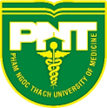Introduction
Health literacy, digital health, and artificial intelligence (AI) are three interconnected concepts that are revolutionizing the healthcare industry. In this blog post, we will explore the importance of health literacy, the role of digital health in improving healthcare access and outcomes, and how AI is transforming the way we approach healthcare.
Understanding Health Literacy
Health literacy refers to an individual’s ability to obtain, understand, and use health information to make informed decisions about their health. It is not just about reading and writing skills, but also includes numeracy skills, critical thinking, and problem-solving abilities.
A lack of health literacy can have significant consequences, leading to poor health outcomes, increased healthcare costs, and health disparities. It is estimated that nearly half of all adults in the United States have limited health literacy, highlighting the urgent need to improve health literacy levels.
The Role of Digital Health
Digital health encompasses a wide range of technologies, including mobile health apps, wearable devices, telemedicine, and electronic health records. These technologies have the potential to empower individuals, improve healthcare access, and enhance patient outcomes.
One of the key benefits of digital health is its ability to provide easily accessible health information. With just a few taps on a smartphone, individuals can access a wealth of information about their health conditions, medications, and treatment options. This can help individuals become more informed and engaged in their own healthcare.
Digital health also enables remote monitoring and telemedicine, allowing healthcare providers to remotely monitor patients’ vital signs, provide virtual consultations, and deliver care to individuals in remote or underserved areas. This not only improves access to healthcare but also reduces the burden on healthcare systems.
The Transformative Power of AI
Artificial intelligence (AI) is revolutionizing healthcare by augmenting human capabilities, improving diagnostic accuracy, and enhancing patient care. AI algorithms can analyze vast amounts of medical data, identify patterns, and provide insights that can assist healthcare professionals in making more accurate diagnoses and treatment decisions.
AI-powered chatbots and virtual assistants are also being used to provide personalized health recommendations, answer common health questions, and support individuals in managing their health conditions. These virtual assistants can provide round-the-clock support and guidance, ensuring that individuals have access to reliable health information whenever they need it.
Furthermore, AI is enabling predictive analytics, which can help identify individuals at risk of developing certain health conditions and allow for early intervention. This proactive approach has the potential to prevent disease progression and improve health outcomes.
Promoting Health Literacy in the Digital Age
While digital health and AI have the potential to improve health literacy, it is important to ensure that these technologies are accessible and user-friendly for all individuals, regardless of their health literacy levels. Clear and concise health information, user-friendly interfaces, and personalized recommendations can go a long way in empowering individuals to take control of their health.
Healthcare providers and organizations also play a crucial role in promoting health literacy. By providing accurate and understandable health information, offering educational resources, and fostering a patient-centered approach, healthcare professionals can empower individuals to make informed decisions about their health.
Conclusion
Health literacy, digital health, and AI are transforming the healthcare landscape. By improving health literacy levels, leveraging digital health technologies, and harnessing the power of AI, we can empower individuals, improve healthcare access, and enhance patient outcomes. It is crucial for healthcare providers, organizations, and policymakers to collaborate and ensure that these advancements are accessible and beneficial for all individuals.
